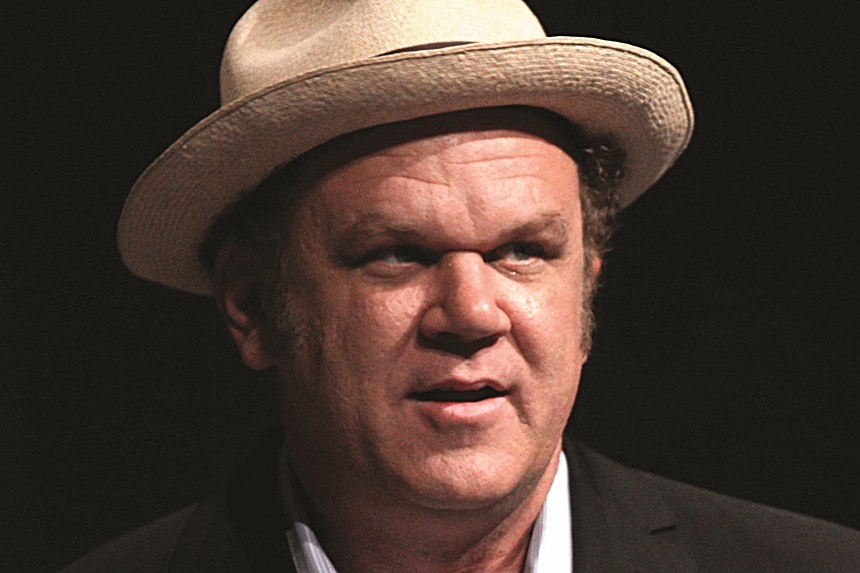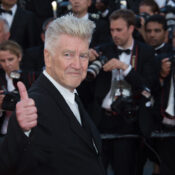John C. Reilly has played such a diverse and unpredictable range of characters that it’s hard to keep track of them all, especially since he so completely takes over each role. He got lots of laughs in comedies like Talladega Nights and Walk Hard while surprising Hollywood with his depth as a dramatic actor in films like Gangs of New York, Boogie Nights, and Magnolia. His performance crooning “Mister Cellophane” in the musical Chicago even earned him an Oscar nomination.
Four of his latest movies showcase the depth of his versatility. Ralph Breaks the Internet brings back Wreck it Ralph for giggles. The Sisters Brothers is violent and hilariously down and dirty with Joaquin Phoenix. Holmes and Watson has Reilly rejoining Will Ferrell for a comic mystery.
And then there’s Stan and Ollie, his Laurel and Hardy project, in which Reilly plays Oliver Hardy — fat suit and all — opposite Steve Coogan. It focuses on the bromance that kept the classic comedy pair together even when they were falling apart. Reilly admits he was scared to death to play his comic hero, but he confesses, “I couldn’t stand the idea of anyone else doing it. There I am — humility and ego in one package.”
Reilly never slouches into a room wearing blue jeans. He makes an entrance, usually in a jaunty hat, a suit with a stand-out vest, and a notable pair of shoes from his vast collection. He always bowls you over with his glad-to-be-here attitude.
Jeanne Wolf: I actually watched you shed a tear as you watched a clip from Stan and Ollie. Why that emotion?
John C. Reilly: I guess it’s a little bit immodest to cry at your own film, but once you separate from making it and get to watch as an audience member, it’s different. The things that we explore in the movie about Laurel and Hardy are very touching, and I was thinking about what life was like for these two guys. It was bittersweet. We delve into the more complicated aspects of their up-and-down relationship, which mixed comedy with tragedy.
But you also get a sense of what it took to make their brilliant physical comedy look so easy and natural — the simple little gags, like the double door routine that’s in the film, where we keep missing each other and we go in one door and out the other and in the other and out the other. It’s very funny but requires almost a symphonic orchestration behind the scenes. You’re doing all of that almost like a dance inside your head. To make it look casual requires hours and hours and hours of rehearsal, and believe me, Steve and I did our share to get it right.
I appreciated that because I do a lot of physical shtick and I’ve learned not just from Laurel and Hardy but Buster Keaton or maybe Chevy Chase. I try to do realistic character stuff. I am not really trying to do pratfalls or whatever.
JW: First you were thought of as a comedian, but now you’ve done very dramatic roles as well. How do you see yourself?
JCR: I’m an actor because that’s what I’ve been since I was a little kid. It’s just something I always did. I like experiencing things and sharing them through a character because it makes me feel connected to people. I almost became a clown actually. My plan was to go to clown college after I finished acting school. And then somebody talked me out of it who was a clown. They were like, “No man. It’s a five-year contract and you have to ride in the worst compartment of the train. It’s a nightmare.” So I reconsidered. But I think I figuratively joined the circus when I started doing theater when I was 8 years old. That’s when I found my people, my fellow freaks.
As for going for laughs, a lot of comedians are desperate for them because, I don’t know, their mom and dad didn’t laugh at them or something. I’m not one who is craving to fill some missing place inside of me with laughter
JW: When you’re going for laughs you seem pretty fearless.
JCR: I’m not in the matinee idol business, where people are judging me about my body or whatever. When you’re doing comedy you can’t go, “I’ll chase the joke only so far and stop.” I learned that from Will Ferrell, actually. You commit all the way, and you must throw everything you have in the line of fire, including your body, your dignity, your reputation. Watching Will run around in his underwear for Talladega Nights was a big inspiration. I was like, “Man, that guy is brave.”
I think I figuratively joined the circus when I started doing theater. That’s when I found my people, my fellow freaks.
I don’t think there’s a big difference between comedic and dramatic acting. You push yourself to do it as honest and as real as you can. And I learned to improvise, which is freeing. It’s like you are letting your subconscious loose, and a lot of times the funniest stuff that you come up with has some basis in your real life and your real experiences.
I guess I’m sort of a chameleon. I don’t really know who I really am. I think I’m sort of a sum of my characters, to tell you the truth. I’m the Special Forces of character actors. I don’t mind. I was just a kid from Marquette Park in Chicago. I’m glad to be in the crazy world of Hollywood, and I’m having fun. I don’t worry about who’s the top dog; I’m just glad to be part of the game.
I think you need to be ready for luck. When luck comes knocking at the door, people have their pants off and they’re not ready. I’ve worked with many great actors, all along the way, brilliant, gifted people who just don’t get the break that you got or didn’t take it. Anyone with a sense of humility or knowing the way the world goes for actors knows that there are hundreds of people behind you in your path who didn’t get lucky.
JW: You describe yourself as a homebody. But you have to be out in public.
JCR: I only truly feel strange about it when I’m cornered by people that make me feel uncomfortable. I stay away from a lot of that stuff. I think you can kind of create your own reality to a certain extent. It can be a real freak show at times, but I have it easy compared to some people. So I’m not complaining.
JW: How do you react when you watch yourself?
JCR: Normally, I see my movies just once. I just get filled with regrets if I watch my stuff too much. I feel like, the older you get and the more experienced you get, the more, when you look back at your older work, you find yourself going, “Oh, I should have done this, I should have done that.”
A lot of filmmakers hate test screenings. It’s like this thing that the studio forces them to do. They go there, and they’re like, “The audience has to tell us what the movie is going to be. What a drag.” But I realized it’s where you can learn what is hitting with the audience.
JW: You’ve worked often in duos, with a strong co-star. Ever had any moments when the connection just wasn’t there?
JCR: My worst experience with another actor was in Walk Hard: The Dewey Cox Story with Willie, who happens to be a chimpanzee. We did a scene where I kiss him. In the first version, I’m saying, “No one understands me. You’re my only friend.” I have this real heart-to-heart talk with the chimp. And Jake Kasdan, the director, was like, “It’s almost too sweet. Maybe you should get mad or something.” And then I did a take that ended up in the movie, where I go, “I’m sick of all this crap. All you care about is fruit and touching yourself!” And I get up and storm off. And I thought, “Whatever. He’s a chimpanzee. He’s not going to notice what I do from take to take.”
I came back, and the look on Willie’s face was heartbreaking, this shocked, hurt look. And I was like, “Oh, Willie. I’m sorry.” He was a little tentative at first, and then he reached out and wanted to hug me. And I hugged him and said, “It’s okay. It’s okay.” And we did the scene a few more times, and I’d yell at him again.
Eventually, he started to understand, “Oh, it’s like a game. You do that.” He even started to play with me and show his teeth like, “I can be angry at you, too.” But by the end of it, we were really great pals. It was sad to see him go.
Photo by Gage Skidmore
Become a Saturday Evening Post member and enjoy unlimited access. Subscribe now



